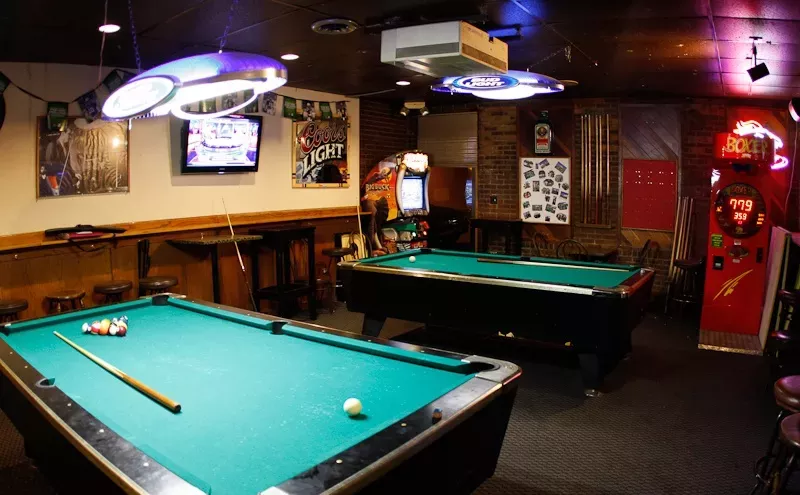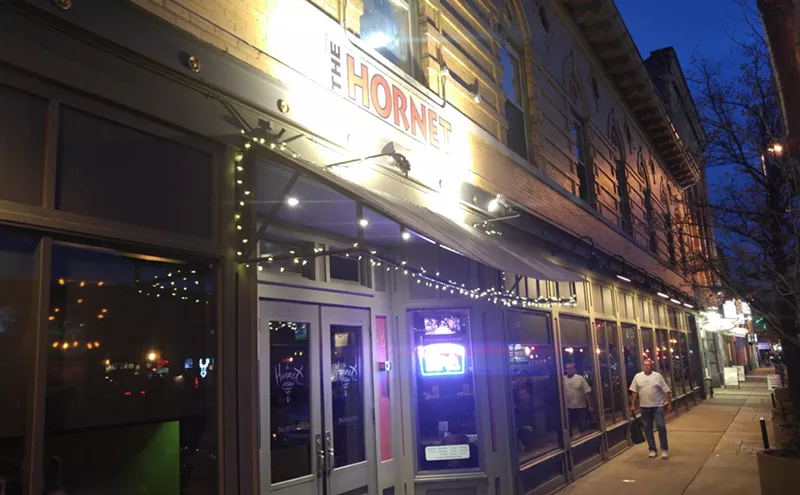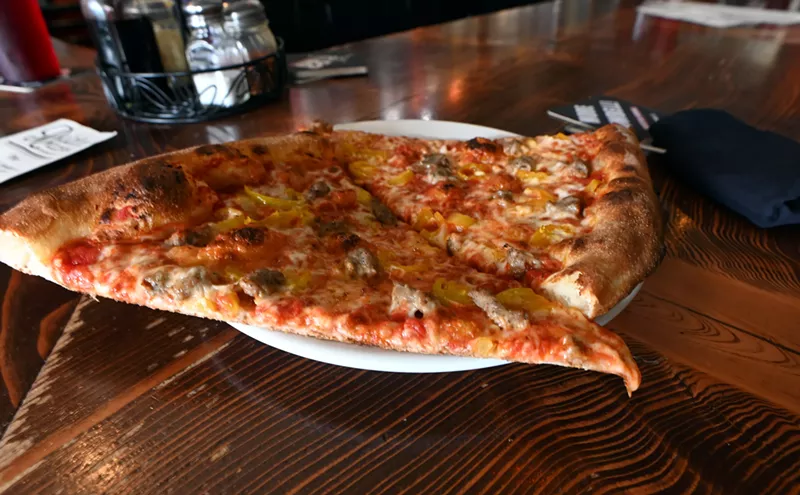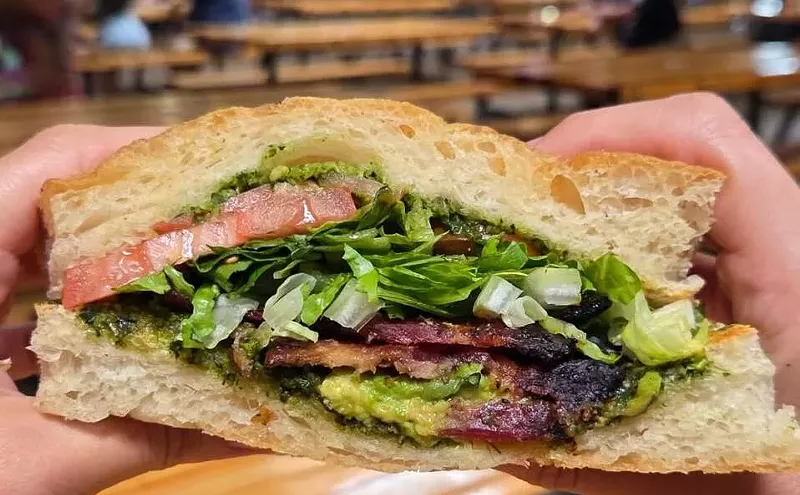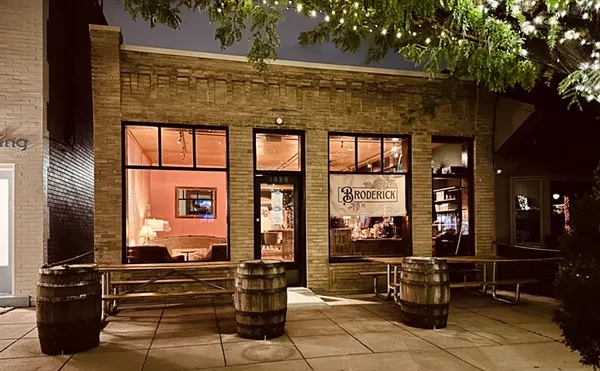But is it also the center of the "crafty" beer universe?
On Thursday, the Brewers Association, which represents small brewers nationwide, fired an oddly-timed shot over the bows of MillerCoors and Anheuser-Busch, blasting them for selling "crafty" beers without labeling them as their products.
"When someone is drinking a Blue Moon Belgian Wheat Beer, they often believe that it's from a craft brewer, since there is no clear indication that it's made by SABMiller," the Brewers Association statement read. "The same goes for Shock Top, a brand that is 100 percent owned by Anheuser-Busch InBev."
See also: - Chicago's Goose Island will brew some of its signature 312 beer in Colorado's 970 - Blue Moon cooks up chocolate bacon porter and two more beers at the Sandlot - Five things you didn't know about the Sandlot brewery at Coors Field
And both were born right here in Colorado, which could also be the home of the next big "crafty" brand, Goose Island, a formerly independent craft brewer that was purchased last year by AB, which plans to brew several of the company's products in Fort Collins.Blue Moon was created inside Denver's Coors Field in 1995 at the Sandlot Brewery, now called Blue Moon Brewing @ the Sandlot, as Bellyslide Belgian White. At the time, there were only about 850 craft brewers in the country, as compared to 1,260 today. The seventeen-year-old brand has since gone national and has several variations.
Shock Top, which is also a Belgian White or wit, was first made at Anheuser-Busch's massive Fort Collins brewery under the name Spring Heat Spiced Wheat. This brand also has numerous variations. AB described it as the "third in a series of successful seasonal draughts, following Jack's Pumpkin Spice Ale and Winter's Bourbon Cask Ale."
And now, Goose Island, which the Brewers Association no longer considers a craft brewery because of its ownership change, has filed applications with the federal government to brew at least four of its major brands in Fort Collins.
The company has indicated that it will take these brands nationwide -- probably without the AB name on the labels either.
The Brewers Association statement came an odd time since Blue Moon has been around for seventeen years and Shock Top for six -- and neither one has ever put the parent company's label on the bottle.But BA spokeswoman Julia Herz says it was in response to recent media coverage about megabreweries have been experimenting with craft beer.
"The association has never really issued a press statement like this," she says. "We do have positions...But this is a new direction on this one topic, but it is a topic that has been building internally...at the association and amongst our members. They are saying that the lines have been blurred over time and they are getting blurrier."
Read the association's full statement on the next page.
An American craft brewer is defined as small and independent. Their annual production is 6 million barrels of beer or less and no more than 25 percent of the craft brewery is owned or controlled by an alcoholic beverage industry member who is not themselves a craft brewer.The community of small and independent craft brewers has grown as beer enthusiasts embrace new, diverse beers brewed by their neighbors and friends who are invested in their local communities. Beer drinkers are voting with their palates and dollars to support these entrepreneurs and their small and independent businesses.
In 2011, small and independent craft brewers saw their industry grow 13 percent by volume; in the first half of 2012, volume grew by an additional 12 percent. Meanwhile, the overall beer industry was down 1.3 percent by volume and domestic non-craft was down 5 million barrels in 2011.
Witnessing both the tremendous success and growth of craft brewers and the fact that many beer lovers are turning away from mass-produced light lagers, the large brewers have been seeking entry into the craft beer marketplace. Many started producing their own craft-imitating beers, while some purchased (or are attempting to purchase) large or full stakes in small and independent breweries.
While this is certainly a nod to the innovation and ingenuity of today's small and independent brewers, it's important to remember that if a large brewer has a controlling share of a smaller producing brewery, the brewer is, by definition, not craft.
However, many non-standard, non-light "crafty" beers found in the marketplace today are not labeled as products of large breweries. So when someone is drinking a Blue Moon Belgian Wheat Beer, they often believe that it's from a craft brewer, since there is no clear indication that it's made by SABMiller. The same goes for Shock Top, a brand that is 100 percent owned by Anheuser-Bush InBev, and several others that are owned by a multinational brewing and beverage company.
The large, multinational brewers appear to be deliberately attempting to blur the lines between their crafty, craft-like beers and true craft beers from today's small and independent brewers. We call for transparency in brand ownership and for information to be clearly presented in a way that allows beer drinkers to make an informed choice about who brewed the beer they are drinking.
And for those passionate beer lovers out there, we ask that you take the time to familiarize yourself with who is brewing the beer you are drinking. Is it a product of a small and independent brewer? Or is it from a crafty large brewer, seeking to capitalize on the mounting success of small and independent craft brewers?
Follow Westword's Beer Man on Twitter at @ColoBeerMan and on Facebook at Colo BeerMan



